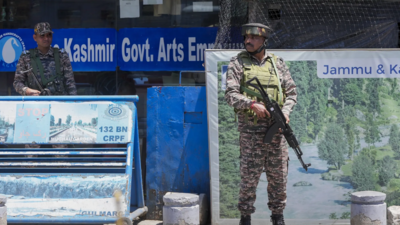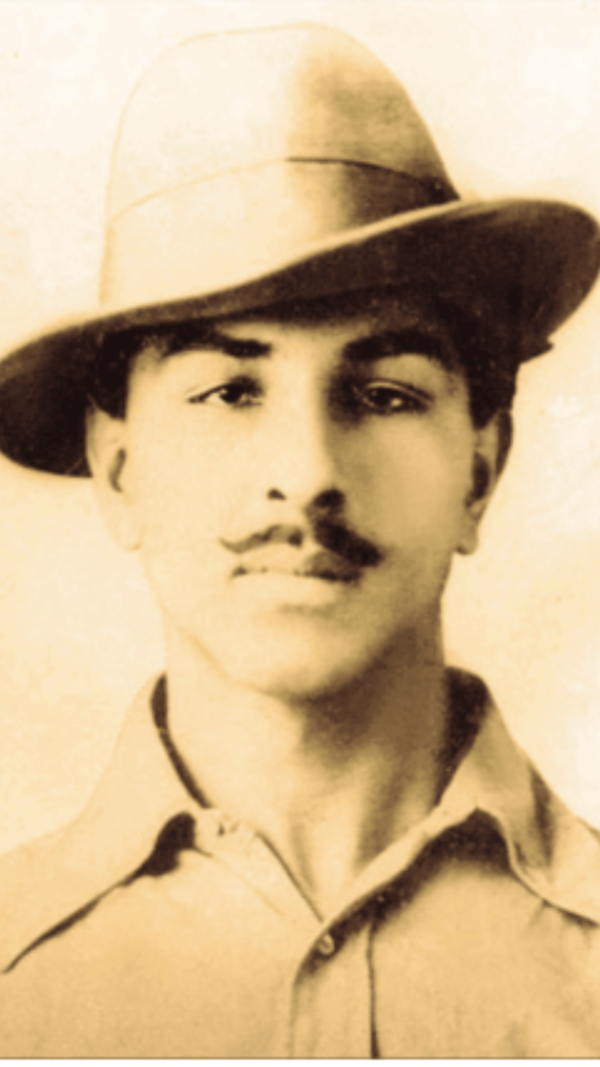URI: The radio crackled under a clear sky Tuesday afternoon as 75-year-old Ghulam Hassan sat in his lawn, eyes fixed across Haji Peer stream toward Tehsil Kota in PoK. “If the border flares up, our houses become direct targets,” he said.
Routine held firm for most of the day. Students stayed inside classrooms at govt middle school in Tulawari village of Uri in north
Kashmir’s Baramulla district. Residents worked quietly. For a while, it felt like just another day along LoC.
But tension ran deep beneath the surface. Hassan, a retired animal husbandry employee, tuned in constantly to radio news since April 22, when a terrorist attack in Pahalgam killed 26.
“I have seen the brutal shelling. I don’t want to see another war. Where would I take my grandchildren,” he said, pointing toward hills less than half a km away.
Uri knows what escalation feels like. On Sept 18, 2016, four terrorists attacked Army’s brigade headquarters in the town, killing 19 soldiers. That assault triggered surgical strikes across LoC.
Fears of renewed violence returned after Pahalgam, despite no visible military movement in Uri. “Living on the border is living in hell if the ceasefire ends. There is constant shelling, firing and injuries and deaths,” said Hassan, voice heavy with memory.
Since the 2003 ceasefire, Uri had enjoyed relative peace. “We feel like any other place in Kashmir. I hope the situation remains peaceful,” he said.
Hassan’s daughter-in-law Shameema wasn’t taking chances. “We, the village women, just cleaned the village bunker. There was a lot of dirt in them,” she said.
Three bunkers, each roughly half a km apart, were built five years ago to shelter Tulawari’s 1,500 residents. Hassan said the bunkers couldn't house everyone but could protect children.
Ghulam Mohammad Mir, Hassan’s friend in his 80s, believed threats now extend beyond geography. “Wars will not remain confined to the borders. It will move beyond borders,” he said, tending his vegetable patch. A bunker stands on his land. “The bunkers are useless in modern wars,” he added.
Uri town bustled with apparent normalcy Tuesday. Markets thrived. Children played cricket in the afternoon sun. Road widening continued near Uri-I and Uri-II hydro projects.
At Shahi Darbar restaurant, 80-year-old Mohammad Shafi Khan smiled. “Wars now can be devastating to urban and border populations alike. It is not 1965,” he said.
Still, anxiety simmered. “You people are creating a war-like fear,” said Haji Shafeeq, 49, president of Uri Traders Association, sitting in his hardware shop. “In 1998, before the ceasefire, Uri appeared almost deserted. I once had to carry myself, wounded, to a hospital in Baramulla. When you’re hit by a shell, you pray for death. We’ve suffered it.”
Blanket seller Rajesh Awasti from Lagama village, where Hindus and Muslims live side by side, stayed confident. “If there is a war-like situation, we feel it first as we see a huge build up by the Army. We haven’t seen anything like that,” he said.
By early Wednesday, quiet had vanished after
Operation Sindoor — India’s overnight precision strikes at terrorist sites in Pakistan and PoK.
Massive Pakistani shelling hit Uri sector. Officials confirmed 10 people wounded. Salamabad bore the worst, with homes destroyed, one reduced entirely to rubble. Residents had fled in time.
At Uri hospital, doctors treated the wounded. Shops remained shut. Roads emptied. Bulldozers and labourers vanished from work sites.
Abdul Rashid, owner of Shahi Darbar, opened his restaurant briefly. “It was a 1998 situation, firing was going on heavily. People have moved to safer places,” he said.
In Tulawari, Hassan rushed his grandchildren into a bunker as shells screamed overhead. Still, he returned to his home by Wednesday afternoon. “Let us see what will happen tonight,” he said, his voice calm but uncertain, as dusk approached once again over the shadowed hills of Uri.









